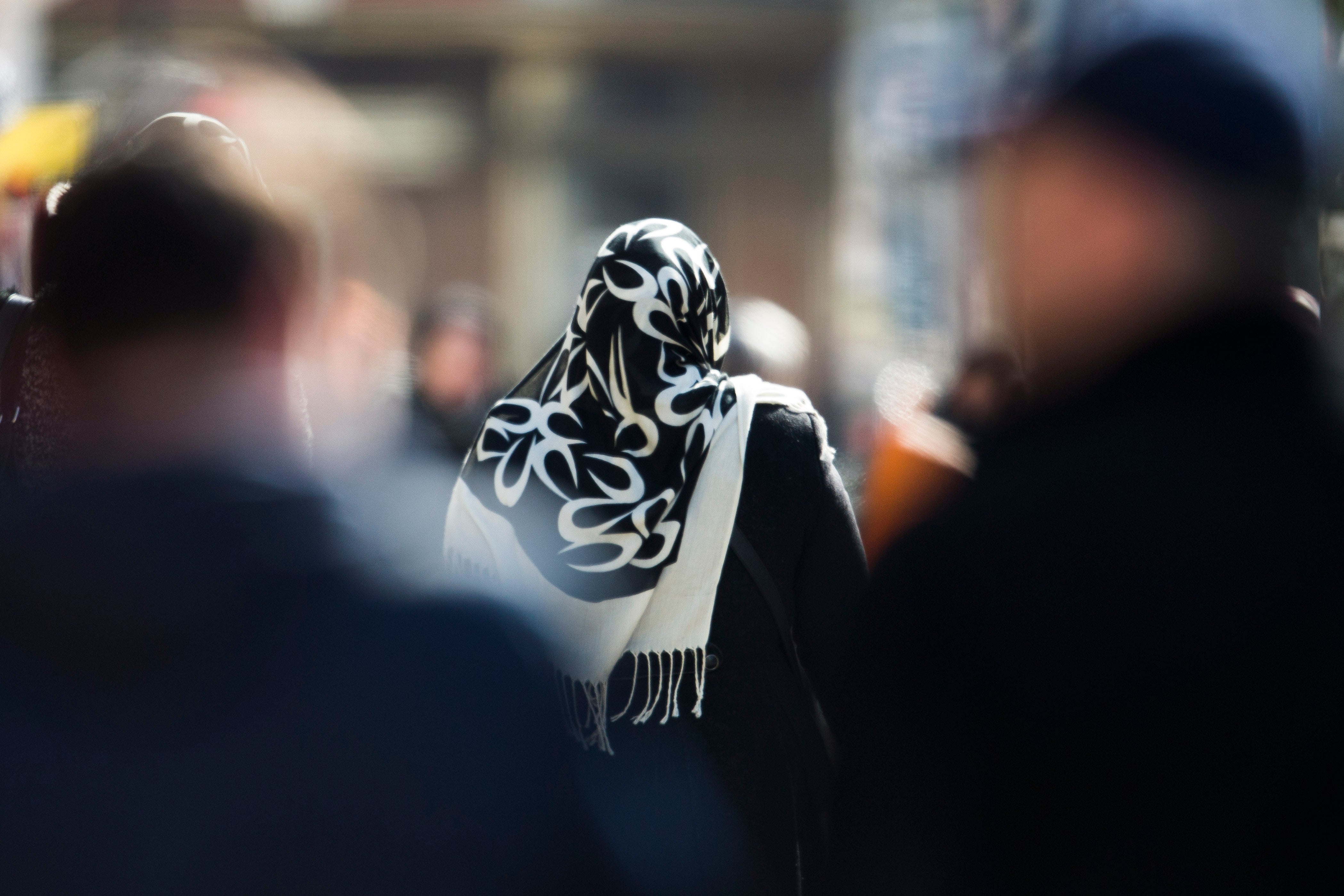EU court rules employers can limit religious symbols
The European Union’s top court has ruled that employers may forbid the wearing of visible symbols of religious or political belief, such as headscarves

Your support helps us to tell the story
From reproductive rights to climate change to Big Tech, The Independent is on the ground when the story is developing. Whether it's investigating the financials of Elon Musk's pro-Trump PAC or producing our latest documentary, 'The A Word', which shines a light on the American women fighting for reproductive rights, we know how important it is to parse out the facts from the messaging.
At such a critical moment in US history, we need reporters on the ground. Your donation allows us to keep sending journalists to speak to both sides of the story.
The Independent is trusted by Americans across the entire political spectrum. And unlike many other quality news outlets, we choose not to lock Americans out of our reporting and analysis with paywalls. We believe quality journalism should be available to everyone, paid for by those who can afford it.
Your support makes all the difference.The European Union’s top court ruled Thursday that employers may forbid the wearing of visible symbols of religious or political belief, such as headscarves.
But the Luxembourg-based tribunal said in its ruling that courts in the bloc's 27 member states should weigh up whether the ban corresponded to a “genuine need" on the part of the employer. They must also consider the rights and interests of the employee, including by taking into account national legislation on freedom of religion, it said.
The case was brought before the Court of Justice of the European Union by two women in Germany who chose to wear Islamic headscarves at their workplaces. One works as a special needs carer while the other is a sales assistant and cashier.
Both filed legal complaints before German courts, which in turn referred questions to the EU tribunal.